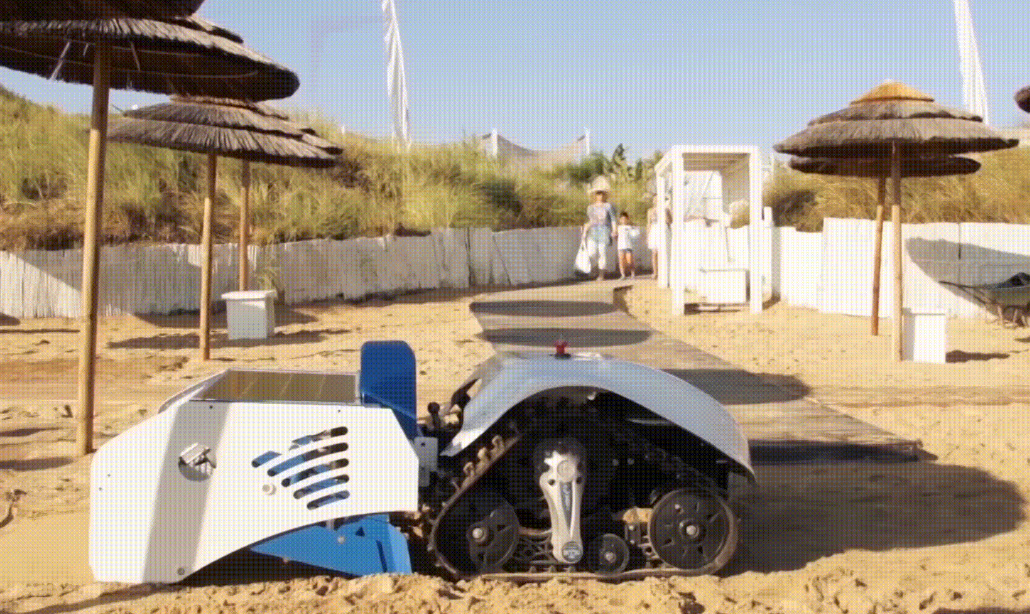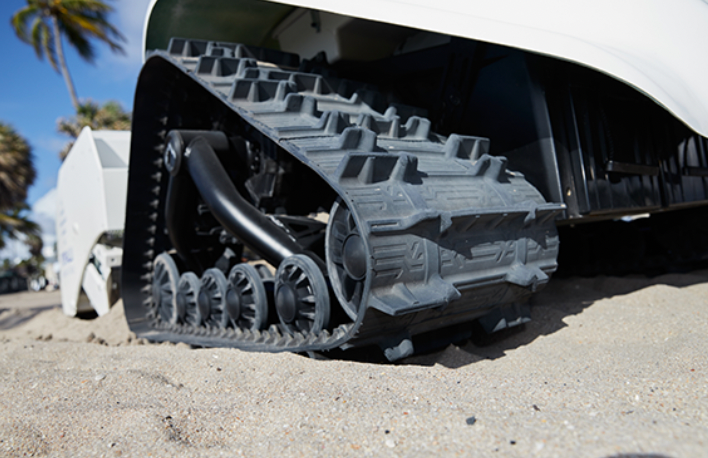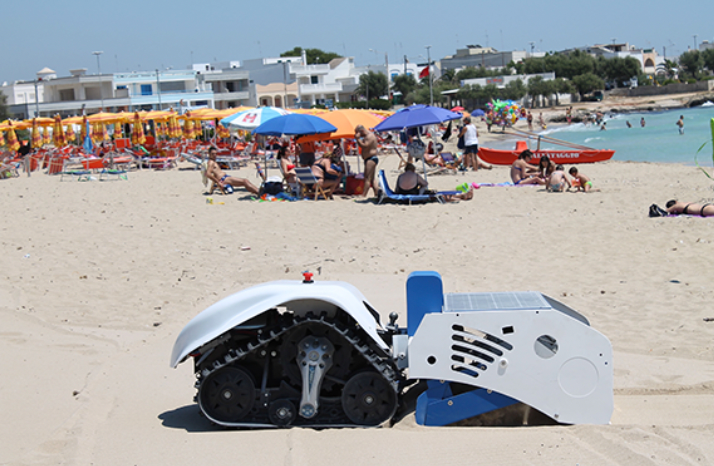Robotic beach cleaner deployed to tackle Great Lakes plastic pollution

CHARLEVOIX — Around 22 million pounds of plastic debris end up in the Great Lakes every year, according to Jennifer McKay, chief policy and government affairs director at the Tip of the Mitt Watershed Council.
A staggering 90 percent of these plastics, including water bottles, bags, silverware and straws, find their way onto beaches. In addition to the unsightly litter, the trash poses a danger to animals and plants that make their homes along the Great Lakes.
To combat this environmental crisis, the Tip of the Mitt Watershed Council has collaborated with the Great Lakes Plastic Clean-up Project to procure a robotic beach cleaning device aimed at removing plastic waste from Lake Michigan beaches and inland lake beaches. Approval from the State of Michigan and several neighboring municipalities has been secured for the deployment of this robot, known as the BeBot.
Operated remotely, the BeBot traverses sandy areas, raking for debris and leveling out beach expanses. It is equipped to collect all waste buried in the sand and can differentiate between plant and animal life as it screens the sand, according to McKay.
“A BeBot is an eco-friendly versatile beach robot that shifts the sand and rakes the beach while picking up plastic and other debris,” she said.

Subscribe: Check out our offers and read the local news that matters to you
Currently, 26 beaches, including Petoskey State Park, five other state parks and eight municipalities, along with three private beach sites, are slated to benefit from the BeBot's services. The municipalities include Antrim County, Boyne City, Charlevoix, East Jordan, Elk Rapids, Harbor Springs, Melrose Township and Tuscarora Township.
Charlevoix, for example, has designated four beaches for the BeBot's cleanup operations.

Tip of the Mitt staff will oversee the BeBot's operation, in partnership with the Petoskey High School Robotics Club.
In a recent city council report, Charlevoix City Manager Mark Heydlauff confirmed the robot will not operate during exceptionally busy beach days and comes at no cost to the city. He expressed curiosity about the BeBot's performance and potential future acquisition for beach maintenance efforts.
In an email to the Courier, Heydlauff highlighted Charlevoix's commitment to environmental preservation and expressed enthusiasm for the pilot program. He also emphasized the importance of maintaining beaches for both recreational enjoyment and environmental protection.
“The City of Charlevoix has long partnered with the Tip of the Mitt Watershed Council on various initiatives to preserve and protect the water quality we all enjoy," wrote Heydlauff. "When they announced the pilot program to use a beach cleaning robot, it seemed like a natural fit for us. With significant beach frontage at Ferry Beach Park, Michigan Beach Park, Depot Beach and Mt. McSauba, maintaining our beaches is always an important aspect of maintenance — both for folks who enjoy the water and for the protection of our natural environment. While litter is not a significant issue for us, I view a project like this as a way of doing our best to care for our natural environment. A free pilot program seems like a natural fit to see what opportunities might arise in the future."

McKay noted the enthusiasm of the municipalities involved in the effort.
“Municipalities are excited to do it,” she said.
The BeBot, powered by batteries and solar energy with a three-hour maximum operational duration, is scheduled to operate twice a week from May to October. Its schedule will be available on Facebook and online.
McKay encourages community members to witness the BeBot in action and hopes that observing the waste it collects will inspire people to reduce their use of single-use plastics in favor of more sustainable alternatives.
“We’d like people to come out and see what they have collected. Hopefully that will encourage people to eliminate completely single-use plastics, all the things you use for convenience that have alternatives,” she said.
— Contact reporter Annie Doyle at (231) 675-0099 and adoyle@charlevoixcourier.com
This article originally appeared on The Petoskey News-Review: Robotic beach cleaner deployed to tackle Great Lakes plastic pollution
